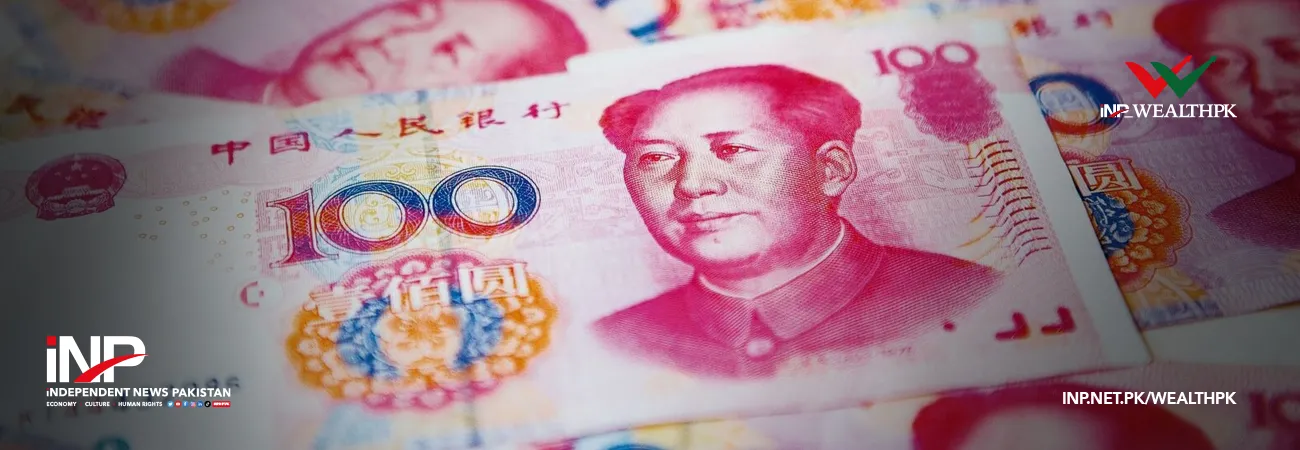INP-WealthPk
Ayesha Saba
Pakistan is progressively gravitating towards transactions denominated in the Chinese yuan (RMB). This strategic pivot not only reflects the evolving economic landscape within Pakistan but also presents a substantial opportunity to conserve valuable foreign exchange reserves. Speaking to WealthPK on the development, Hassan Dawood Butt, former chief executive officer of Khyber Pakhtunkhwa Board of Investment and Trade, and Project Director of CPEC at the Ministry of Planning and Development, acknowledged the pivotal role of China as one of Pakistan's most crucial trading partners. He underscored the potential advantages of trading in yuan, stressing the need for Pakistan to diversify its currency holdings beyond the dominant US dollar. He further said that financial cooperation between Pakistan and China was set to benefit the exporters looking to ship their goods to Beijing.
“A major hurdle for exporters has been the complex documentation and language barrier, making paperwork a challenge. However, the establishment of local RMB clearing and settlement set-ups between the two countries will help Pakistani exporters overcome these barriers.” Zeeshan Aslam Malik, Head of China Coverage at Habib Bank Limited (HBL), said that rupee-yuan alliance was a positive step as it would enhance cross-border corporate cooperation and collaboration between the two countries. “China's vast market presents a lucrative opportunity for Pakistani investors, offering access to a large pool of potential clients. With the PKR-RMB alliance in place, Pakistani investors can navigate the Chinese market more efficiently, leveraging the stability and accessibility of RMB for conducting business transactions.”
He recalled that in early 2020, HBL became the first Pakistani bank to start operations in China, marking a significant milestone in the nation's banking sector. He explained that the settlement and clearing mechanism was expected to reduce the cost of the domestic banking system while dealing with the yuan besides increasing market liquidity and enhancing trade and investment transactions in the yuan. Deputy Executive of Sustainable Development Policy Institute Director Sajid Amin Jawed said to facilitate international trade transactions, there was a need for a medium of exchange that allowed the buyers and sellers from different countries to transact with each other. “Historically, the US dollar has been the dominant currency in international trade due to its stability, liquidity and wide acceptance.” He noted that the prospects for yuan trade in Pakistan were quite promising. “RMB clearing arrangement in Pakistan will reduce the risks associated with fluctuations in the value of US dollar, which can have a significant impact on Pakistan's economy.”
“It is important to note that switching to the use of RMB in international trade transactions will require significant coordination and cooperation between Pakistan and China, as well as adjustments in the banking regulations and financial systems. The benefits of this policy will be evident in the long-run,” said Jawed. According to the State Bank of Pakistan (SBP), the volume of bilateral trade between China and Pakistan conducted in the yuan has seen a significant increase, reaching over 14% in 2023, up from just 2% in 2018. The SBP has taken concrete steps to facilitate this shift by designating three banks – the Industrial and Commercial Bank of China, the Bank of China, and Standard Chartered Bank – to establish local RMB clearing and settlement set-ups.
INP: Credit: INP-WealthPk













